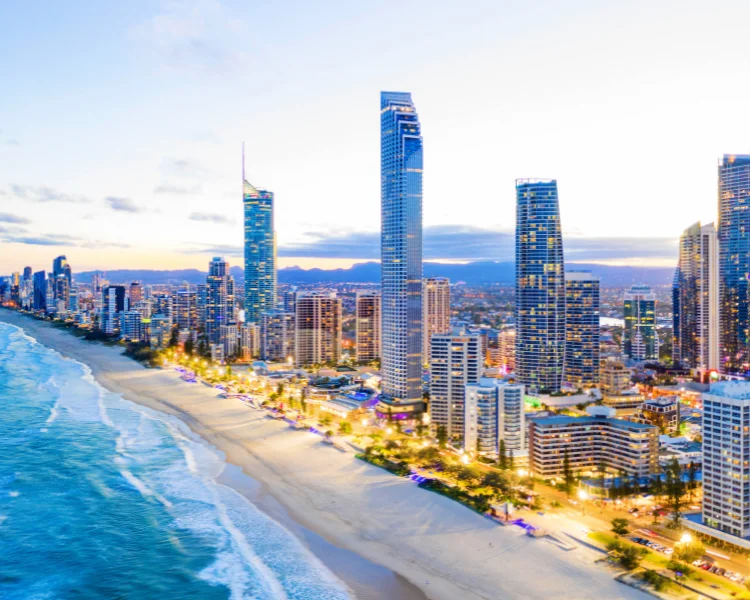Subclass 400 Temporary Work (Short Stay Specialist) Visa in Australia
Are you a highly skilled professional with an opportunity to work in Australia for a short-term project? The Subclass 400 Temporary Work (Short Stay Specialist) Visa might be the perfect fit for you. This visa allows you to enter Australia and work in a specialized role for up to three months, with an extension possible in special circumstances.
This blog provides a comprehensive overview of the Subclass 400 visa. We'll cover everything you need to know, from eligibility criteria and application requirements to Most common questions and Doubts and trending topics like remote work opportunities.
What is a Subclass 400 Visa
Delivering specialized training or workshops.
Consulting on a specific project.
Participating in short-term research activities.
In limited circumstances, the visa can also be granted for activities that are in the interests of Australia.

Eligibility Criteria for Subclass 400 Visa
To be eligible for the Subclass 400 visa, you must meet the following criteria:
Your work must be highly specialized, short-term, and not ongoing.
You must possess the skills and experience relevant to the specific work or activity.
You must have sufficient financial resources to support yourself and any accompanying family members for the duration of your stay.
You must have an invitation from an Australian organization to undertake the work or activity.
You must meet health and character requirements.
FREE ELIGIBILITY CHECK
Factors affecting Subclass 400 visa
You can only apply for the Subclass 400 visa from outside Australia.
You cannot change your job title or designation while on this visa.
You cannot undertake any formal training or education courses on this visa (including workplace-based training).
Family members cannot work while on a Subclass 400 visa
Processing Times for the Subclass 400 Visa
The processing time for a Subclass 400 visa application can vary depending on individual circumstances and the current workload of the Department of Home Affairs.
75% of applications: Processed within 13 days.
90% of applications: Processed within 21 days.
ALSO READ
Remote Work Opportunities with the Subclass 400 Visa
The rise of remote work has opened up new possibilities for the Subclass 400 visa. If your work can be done remotely and your sponsoring organization in Australia approves, you might be eligible to apply for this visa even if you're not physically located in Australia.
Top Cities in Australia with High Demand for Subclass 400 Visa Holders:
Melbourne: A hub for innovation and technology, Melbourne is always looking for skilled professionals in these fields.
Sydney: Australia's largest city offers opportunities across various industries, from finance and engineering to healthcare and IT.
Brisbane: Queensland's capital is a growing center for technology and professional services, attracting specialists in these areas.
Financial Requirements for Subclass 400 visa
Employment Contract: A copy of your signed employment contract with the Australian organization sponsoring your work.
Bank Statements/Letter from a Financial Institution: Proof of sufficient funds in your bank account to cover living expenses for the duration of your visa. A letter from your bank verifying your financial standing can also be helpful.
Accommodation and Other Allowances (if applicable): Documentation outlining any accommodation or living allowances provided by your sponsoring employer in Australia.
Restrictions on Subclass 400 Visa
The Subclass 400 visa comes with certain limitations to ensure it adheres to its purpose of short-term, specialized work. Here's a breakdown of these restrictions:
Work Duration: You must complete your work or activity within the granted visa period, typically up to three months, with a possible extension to six months in special circumstances.
Departure after Visa Expiry: You must not intend to stay in Australia beyond the validity of your Subclass 400 visa.
Education and Training: Formal training courses or education (including workplace-based training) is not permitted on this visa.
Entertainment Industry Restrictions: Working in the entertainment industry is prohibited. Performing as an entertainer, supporting entertainers, directing, or producing content intended for broadcast or performance in Australia.
Job Title Change: You cannot change your job title or designation while holding a Subclass 400 visa.
Health and Character Requirements
You and all family members included in your Subclass 400 visa application must meet health and character requirements.
Medical Examination: Undergo a medical examination by a doctor approved by the Department of Home Affairs within 12 months of lodging your visa application. This ensures you meet Australia's health requirements.
Police Certificates: Obtain police certificates from each country where you've resided for 12 months or more in the past 10 years (after you turned 16 years old). These certificates demonstrate you meet Australia's character requirements.
1.) Health Insurance
Unless your home country has a reciprocal health agreement with Australia, you'll be required to be covered by Australia's national health scheme, Medicare. This ensures you have access to necessary medical care during your stay.
2.) Debts to the Australian Government
It's crucial that you don't have any outstanding debts to the Australian Government at the time of applying for the Subclass 400 visa. If you do have any existing debts, you must make arrangements to repay them before your visa can be granted.

Difference between Subclass 400 Visa vs Subclass 482 Visa
The Subclass 482 visa is another option for working in Australia. However, it's designed for longer-term skilled occupations, typically lasting for two or four years. Here's a quick comparison:
Difference Between Subclass 400 and Subclass 482 Visa
Subclass 400 (Temporary Work Short Stay Specialist): Ideal for short-term, highly specialized work projects lasting up to three months (extendable to six months in special circumstances). This visa is suitable for tasks like training workshops, specialized consultations, or short research activities.
Subclass 482 (Temporary Skill Shortage): Designed for ongoing skilled occupations typically lasting two or four years. This visa caters to filling skill gaps in the Australian workforce for established job roles.
Here's a table summarizing the key differences:
|
Feature
|
Subclass 400 Visa
|
Subclass 482 Visa
|
|
Work Duration
|
Up to 3 months (extendable to 6 months in special circumstances)
|
Up to 2 or 4 years
|
|
Work Type
|
Short-term, specialized
|
Ongoing, skilled
|
|
Application from Outside Australia
|
Yes
|
Yes
|
Can Family Members Volunteer While on a Subclass 400 Visa?
Unfortunately, family members holding Subclass 400 visas are not authorized to work in Australia. This includes paid employment and any activities considered work, such as receiving financial compensation or providing a service in exchange for goods.
However, there might be volunteer opportunities available depending on the organization. Family members should check directly with the organization they'd like to volunteer with to understand their specific requirements and if volunteering aligns with the limitations of a Subclass 400 visa.
FAQ's
Can I apply for a Subclass 400 visa if my work is partially remote?
The possibility of applying with a partially remote work arrangement depends on the Department of Home Affairs' latest guidelines. It's best to consult their website or a migration agent for the most up-to-date information.
What are the tax implications of working on a Subclass 400 visa?
You may be liable to pay Australian income tax on any income earned while on the Subclass 400 visa. It's recommended to consult a tax advisor for specific details.
Can my family members volunteer while on a Subclass 400 visa?
No, family members cannot work while on a Subclass 400 visa. However, there might be opportunities for volunteering. It's advisable to check with the organization where they might like to volunteer to understand their specific requirements and if it aligns with the limitations of a Subclass 400 visa.
How long does it typically take to process a Subclass 400 visa application?
Processing times can vary depending on individual circumstances and current workloads. It's recommended to check the Department of Home Affairs website for the latest estimates.
How much does it cost to apply for a Subclass 400 visa?
The visa application charge can change, so it's best to refer to the official government website for the most current fee information
Can I renew my Subclass 400 visa?
The Subclass 400 visa is not designed for renewal. However, if your circumstances change and your work requires a longer stay, you might be eligible for a different visa category. Consulting a registered migration agent can help you explore potential options.
Where can I find a list of specialist jobs suitable for the Subclass 400 visa?
There's no official list of occupations specifically for the Subclass 400 visa. However, by researching in-demand skilled professions in Australia, particularly those suited for short-term projects, you can identify potential opportunities. Get in Touch with us for Job list.
Tips for Applying for a Subclass 400 Visa
Start planning early: The application process can take time, so begin researching and gathering documents well in advance.
Meet with a migration agent: A registered migration agent can provide valuable guidance and ensure your application adheres to all requirements.
Prepare all documentation carefully: Ensure all documents are complete, valid, and translated into English if necessary.
Meet health and character requirements: Schedule the required medical examinations and obtain police certificates from relevant countries.
Conclusion
The Subclass 400 Temporary Work (Short Stay Specialist) Visa can be a great option for skilled professionals seeking a short-term work opportunity in Australia.
By understanding the eligibility criteria, application process, and recent trends like remote work possibilities, you can make an informed decision about whether this visa is the right fit for you.
We hope this comprehensive guide has equipped you with the knowledge you need to navigate the Subclass 400 visa process. Now, go forth and explore the exciting possibilities of working in Australia!
APPLY NOW
For more information related to an Australia Subclass 400 visa or any other visa Call or WhatsApp: +91 859 574 4633 or Email: [email protected]
